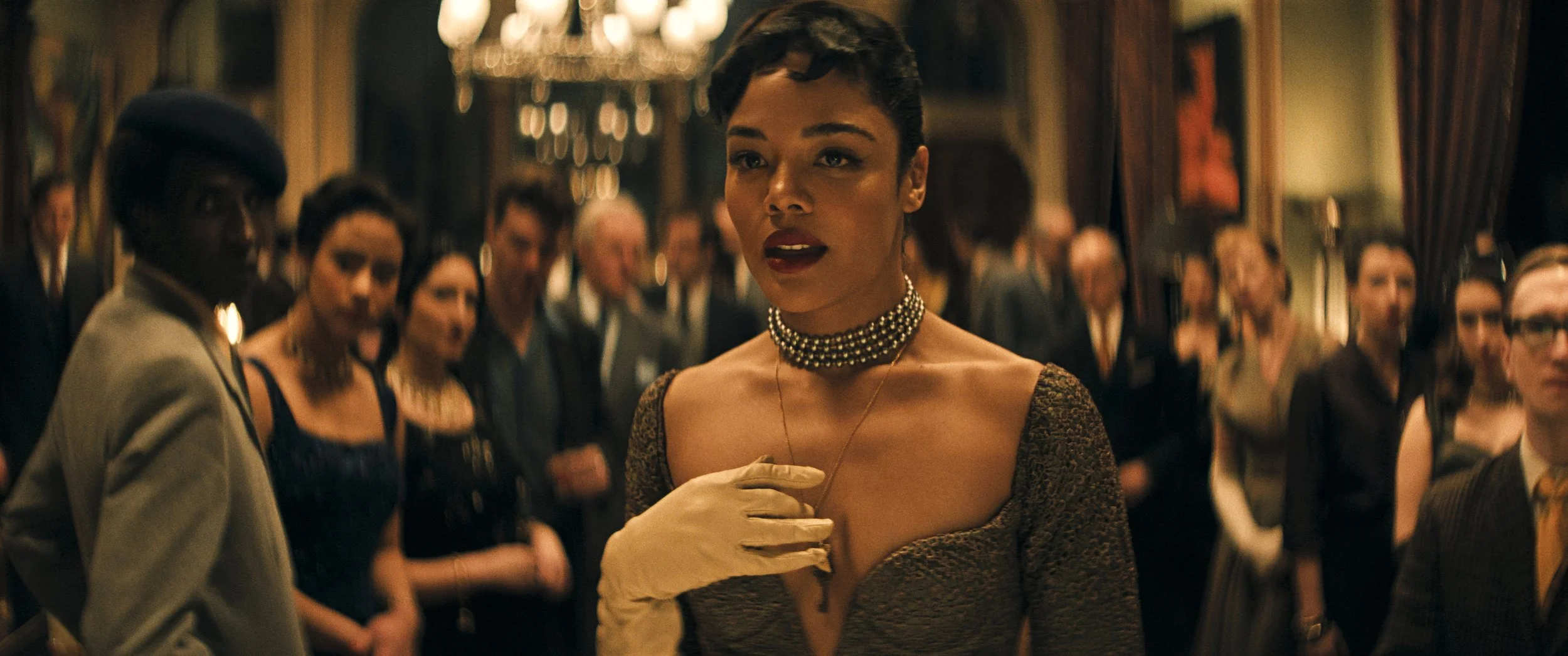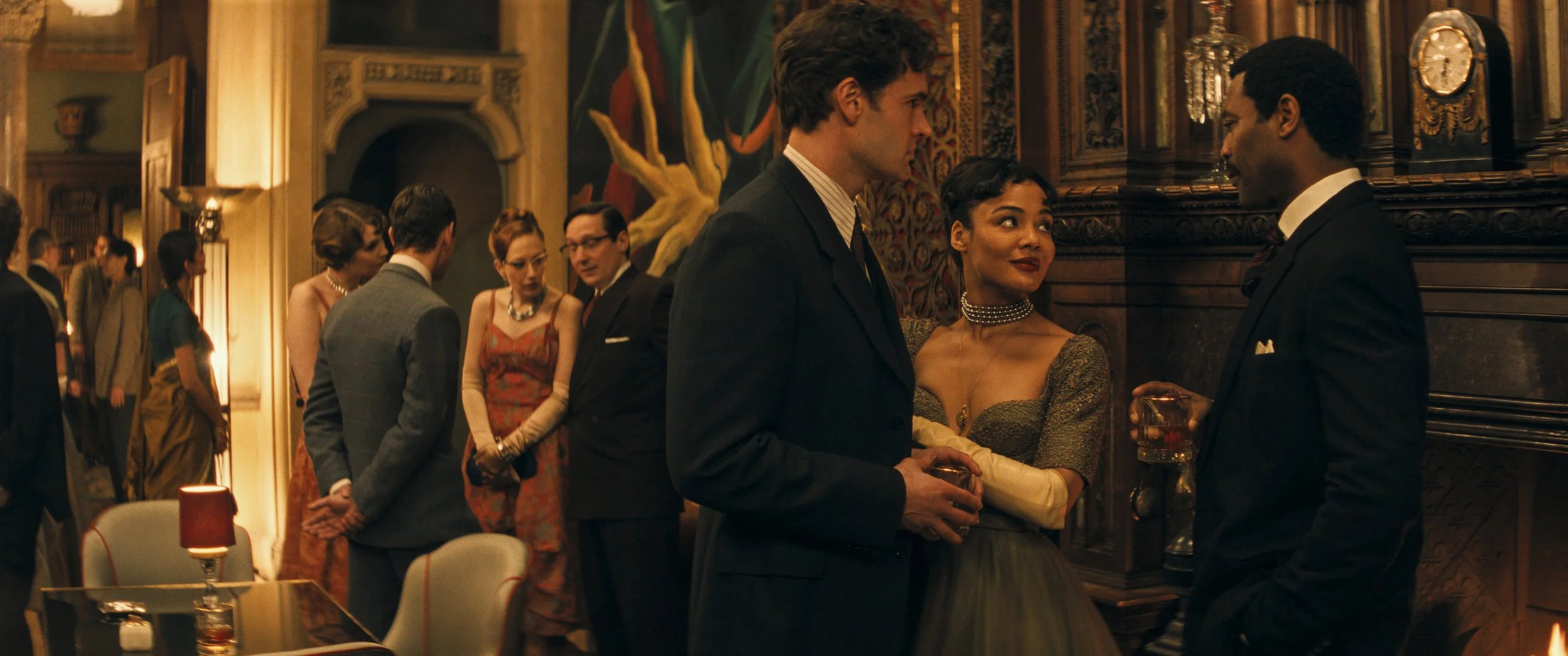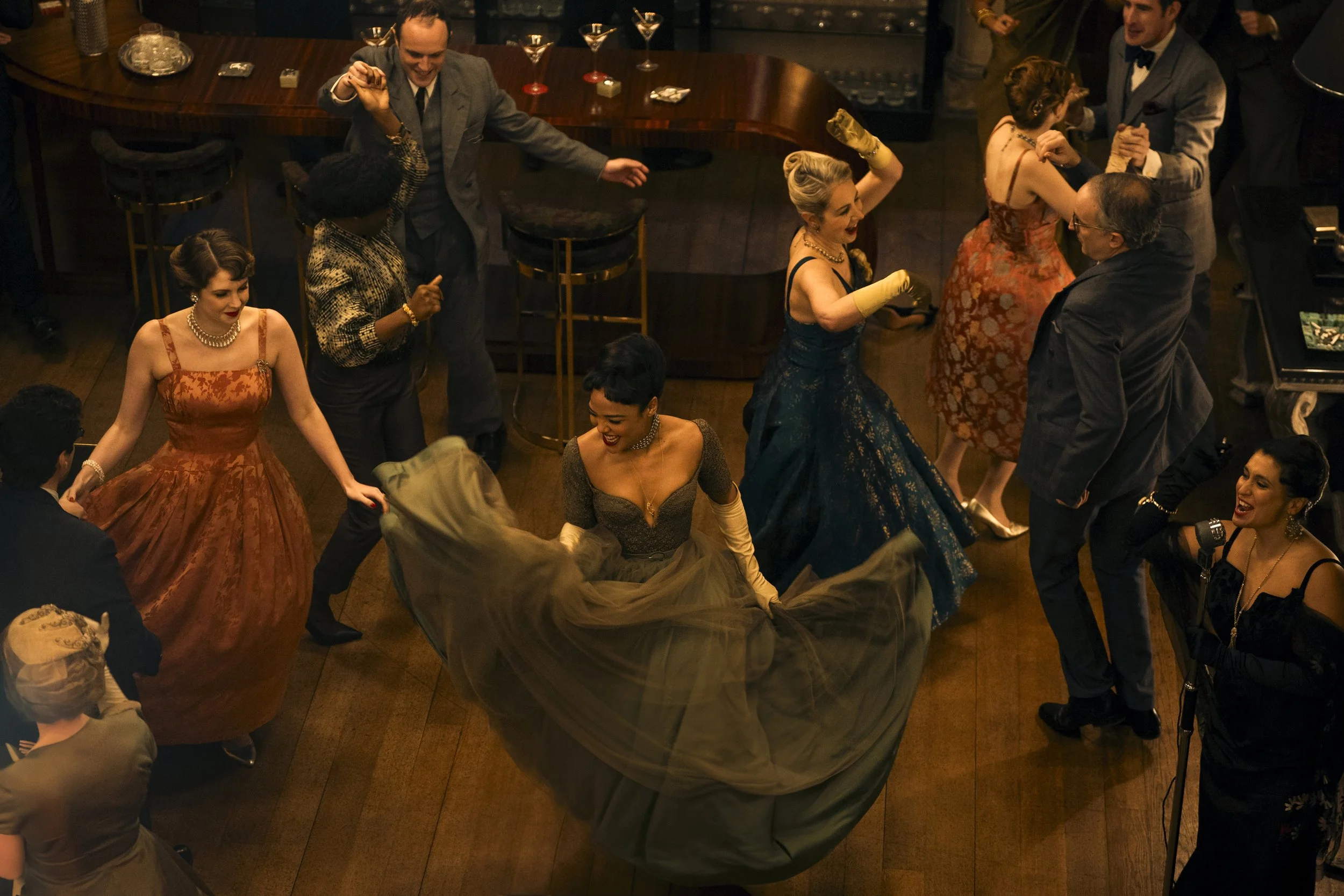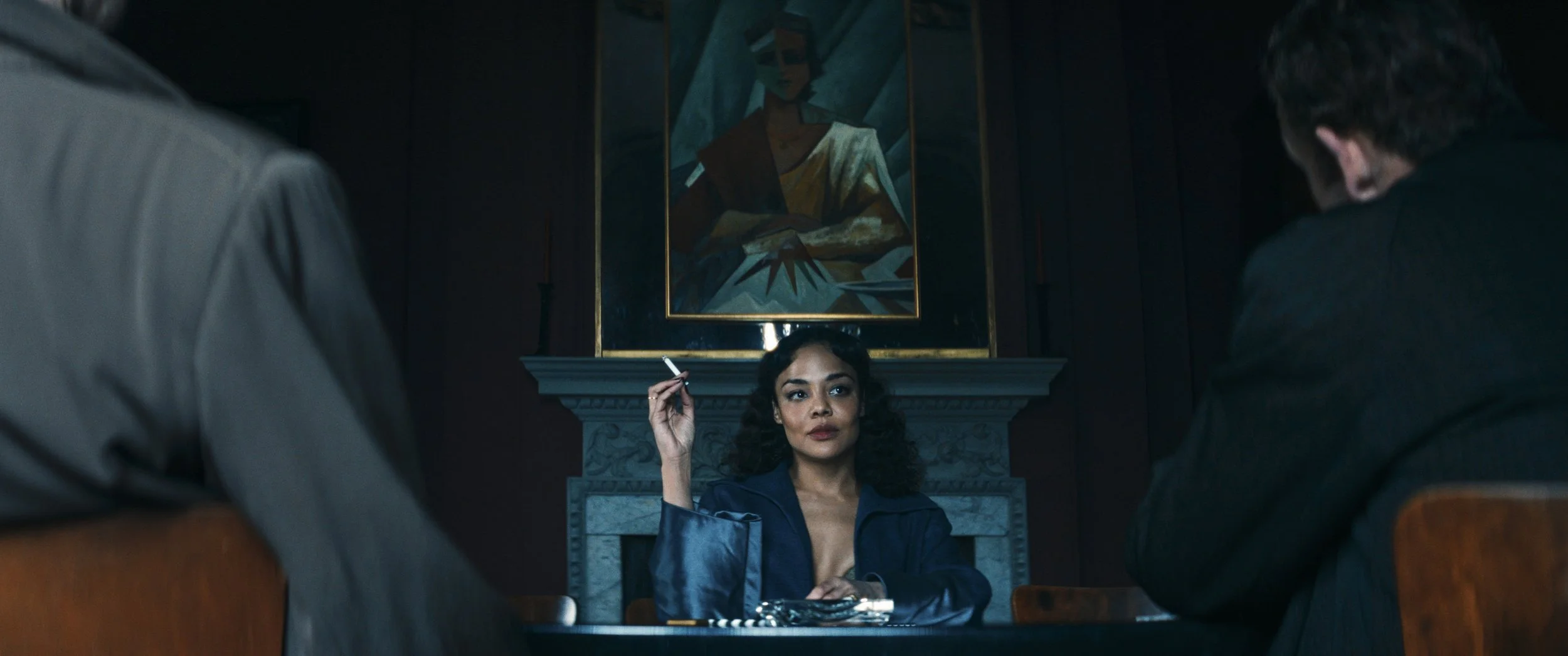‘Hedda’ Review: Tessa Thompson Electrifies in Nia DaCosta’s Visually Stunning Reimagining
Amazon MGM Studios
Tessa Thompson commands the screen in ‘Hedda,’ Nia DaCosta’s dazzling reimagining of Ibsen’s classic. A lush, sensual period piece that’s both provocative and piercing.
Nia DaCosta’s ‘Hedda’ is a film that breathes — literally and figuratively. From its feverish opening frames to the tragic unraveling of its final act, the movie vibrates with emotional tension, visual sophistication, and sonic heartbeat. DaCosta, already known for her versatility across genres, pushes herself into new territory with a bold reimagining of Henrik Ibsen’s classic play, reframing it through a lens of queerness, race, repressed desire, and theatrical sensuality. The result is a film that feels like a dream on the edge of nightmare — decadent, delicious, and just a touch dangerous.
At the center is Tessa Thompson, delivering a career-high performance that is at once magnetic and unsettling. Her Hedda Gabler is a creature of contradictions: calculating and chaotic, seductive and repellent, pitiful and powerful. She moves like she owns every room she enters — and she often does. Thompson doesn’t simply inhabit the role; she reconstructs it from the inside out. With each inhale and exhale, she bends the atmosphere around her. Her breath becomes the metronome of the film, especially when paired with Hildur Guðnadóttir’s pulsating, brass-heavy score. This sonic interplay locks us into Hedda’s internal rhythm — her fantasies, her panic, her desire for control.
Amazon MGM Studios
DaCosta places the action in a richly stylized 1950s England, evoking the luxury and repression of post-war society. But the visual language is unmistakably modern. With cinematographer Sean Bobbitt, she crafts a look that’s part fashion editorial, part fever dream. DaCosta borrows freely and playfully from cinematic traditions — a floating dolly shot recalls Spike Lee, lush candlelit interiors bring to mind Barry Lyndon, and the film’s opulence evokes Babylon and The Great Gatsby. Yet she never loses her own directorial voice. There’s a formal rigor to the symmetry, the blocking, and the tableau-like staging that constantly hints at deeper emotional gamesmanship.
The premise remains faithful to Ibsen: Hedda is stifled in a loveless marriage to George (Tom Bateman), a well-meaning but ineffectual academic. To escape her ennui and economic precarity, she throws an extravagant party, hoping to secure George a career-boosting promotion. But the guest list is strategic. Among the attendees is Eileen (Nina Hoss), George’s chief rival — and Hedda’s former lover — whose arrival ignites both romantic tension and existential dread. Rounding out the ensemble are Thea (Imogen Poots), a shy romantic tangled in a codependent relationship with Eileen, and Judge Brack (Nicholas Pinnock), a charming, dangerous man with his own agenda.
Amazon MGM Studios
DaCosta’s gender-swapping of Eileen’s character adds new dimension, allowing for an exploration of queer love and rivalry without sensationalism. The erotic tension between Hedda and Eileen simmers beneath every scene, never tipping into melodrama. Hoss plays her role with quiet authority, layering every moment with bruised intelligence. Their shared history is evident in the way they circle each other — carefully, hungrily. It’s not just a power play, but a deep emotional scar being re-opened in real time.
POPULAR ON THE CINEMA GROUP
Visually and thematically, ‘Hedda’ indulges in excess — not gratuitously, but with intention. DaCosta explores the seductive thrill of cruelty, particularly as Hedda toys with the lives of those around her. It’s not just narcissism that motivates her — it might be something darker, more psychopathic. She orchestrates conversations like she’s writing a script, watching as each scene unfolds to her design. Hedda doesn’t simply want to be adored; she wants to manipulate the conditions under which adoration is given, and then weaponize it. She doesn’t want love — she wants submission.
Amazon MGM Studios
Throughout, DaCosta embraces theatricality without ever tipping into parody. The dialogue is sharp and biting, peppered with references to modern kink culture, fetishistic power dynamics, and the performance of femininity. Mirrors become a motif, both literal and metaphorical. Everyone is watching everyone else, but no one more so than Hedda herself. She is always performing, always staging her own legend — even as it collapses around her.
Despite its hypnotic beginning and explosive middle, the film does begin to lose steam in its final third. Some subplots fizzle, and the weight of its own operatic style slightly overwhelms the emotional payoff. But even as the story veers toward chaos, DaCosta never lets go of her grip on the film’s mood. ‘Hedda’ ends not with resolution, but with provocation — and that may be its greatest strength. It lingers. It itches.
Ultimately, this is a work of control and chaos in equal measure — and DaCosta’s most personal film to date. It’s not just an adaptation; it’s a reinvention. And Thompson’s performance is the kind that awards campaigns are built around: provocative, unapologetic, and unforgettable.
Rating: ★★★★½
That's a Wrap
|
Hedda
|
That's a Wrap | Hedda |
“A sumptuous, genre-defiant adaptation that blends Ibsen’s text with DaCosta’s maximalist flair, ‘Hedda’ is a masterclass in controlled chaos — and Tessa Thompson is its magnetic center. It doesn’t just update a classic; it detonates it with elegance.”
Credits
Watched: Saturday, September 7 | TIFF World Premiere, 9:30 PM at Visa Screening Room at the Princess of Wales Theatre
Cast: Tessa Thompson, Nina Hoss, Imogen Poots, Nicholas Pinnock, Tom Bateman
Distributor: Amazon MGM Studios
Writer/ Director: Nia DaCosta (Director/Writer), Henrik Ibsen (source)
Release Date: October 22 in select theaters, streaming October 29
Rating: R













![Sundance 2026 Recap [Part i]
Another Sundance in the books. Last one in Park City— premieres, portraits, and the people who made it.
More to come!
📸: @jonathanpmoustakas on @sonyalpha
#sundancefilmfestival #sundance2026 #thecinemagroup](https://images.squarespace-cdn.com/content/v1/65c1a54efb10480185732c60/1770112011067-GAUJ8WUARIG299C1YW9J/image-asset.jpeg)












